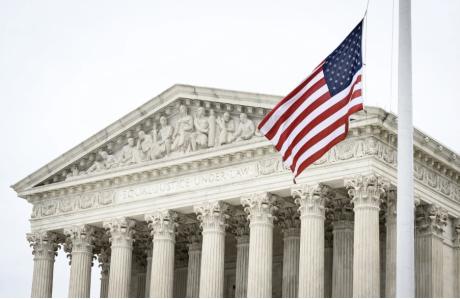Dean Bowman on the SCOTUS Admissions Decision
"The Supreme Court’s decision today will change neither our deep commitment to fostering an inclusive and equitable legal community that represents the diversity of our country, nor our commitment to the research, teaching, and service needed to break down systemic inequity and create greater social equity and justice."

Today, the U.S. Supreme Court issued its decision in "Students for Fair Admissions Inc. v. President & Fellows of Harvard College.” While Roger Williams University School of Law will abide by this decision, we remain fully committed to our mission to attract and retain a student body, faculty, and staff with diverse backgrounds and experiences, especially those historically underrepresented in the legal profession. Our mission includes an express obligation to develop our students’ analytical skills and commitment to ethical practice through the exploration of legal doctrine, policy, history, and theory—including the historical and present-day impact of race on our laws and legal system.
Social justice is core to our mission and embedded throughout our curriculum. In our required pro-bono educational program and numerous legal clinics, our faculty, staff, and students serve underrepresented populations. This important work addresses local community needs and serves as a launchpad for our students to see and practice ways they can effect change in their professional careers. Roger Williams University also has led the way nationally in bringing critical discussions into law school classrooms through our required 3-credit “Race and the Foundations of American Law” course. We are further expanding our efforts in the 2023-24 academic year—the 30th anniversary of our law school’s founding—by establishing a new “Center for Truth, Racial Equity, and the Law.” The Supreme Court’s decision today will change neither our deep commitment to fostering an inclusive and equitable legal community that represents the diversity of our country, nor our commitment to the research, teaching, and service needed to break down systemic inequity and create greater social equity and justice.
We know that today is troubling for many. We are here to support all of you, and especially to show up with support for our BIPOC students, alums, faculty, and staff. We plan to convene discussions about this case further when the Fall semester begins. Until then, know that we are here for you.
All our best,
Gregory W. Bowman
Dean
